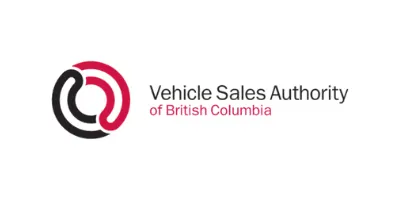
In buying a used car, can I insist on having an independent inspection done?
You found a great deal on a used vehicle. But you’re wary of ending up with something that’s worn out, or has been badly damaged, altered, or even stolen. Fortunately, there are steps you can take to help you get a safe and reliable (and legal!) vehicle.
What you should know
“On Craigslist, someone was selling the exact car I was looking for at a great price. The seller seemed a little sketchy, insisting we meet in a mall parking lot and saying they were selling the car for their uncle. But I loved the car, so I bought it. Within a week, the engine started smoking. The repair shop said it had major problems. I tried contacting the seller, and their number was out of service. I have no way of tracking them down.”
– Samantha, Langley, BC

In BC, there are stronger legal protections if you buy a used vehicle from a car dealer than if you buy from a private seller.
Car dealers must be licensed by the Vehicle Sales Authority of BC, who can step in to assist if there are problems. Licensed dealers must follow strict standards, such as disclosing how a vehicle has been used and prior damage over certain amounts. And when you buy from a car dealer, you're better protected by laws that guard against unfair practices, as compared to when you buy from a private seller.
Businesses can’t engage in unfair practices
Here’s an example. Under BC law, a business isn’t allowed to deceive or mislead you when selling something. So, for instance, a car dealer can’t tell you that a vehicle is of a particular standard or quality when it isn’t.
Under a related law, a business can’t put undue pressure on you to buy. For example, a car dealer can’t tell you that you have to sign a contract immediately to get a “special price” they’re offering.
These laws don’t apply to a private seller.
The legal warranty is more limited if you buy privately
Under another BC law, certain conditions are implied in every sales contract. Whether you buy from a car dealer or privately:
The seller must have the right to sell the vehicle, and tell you if there are any liens against it (such as a claim by a lender that a car loan wasn’t paid).
The vehicle must be as described by the seller.
The vehicle must be durable for a reasonable period of time.
These conditions are referred to as the legal warranty. If (for example) a car isn’t reasonably durable, you can point to the legal warranty to get it repaired or your money back (as we explain here and here).
If you buy from a car dealer, there are additional conditions implied under the legal warranty:
The vehicle must be of merchantable quality (that is, it has to be in usable condition and can’t be damaged).
The vehicle must be fit for the purpose you bought it for.
Which leads to this bottom line: you’re more protected by the law when you buy a used vehicle from a car dealer.
Watch out for “curbers” who pose as private sellers
A lot of ads that look like they’re placed by private sellers are actually placed by curbers. A curber is someone who sells cars to make money, but isn't properly licensed as a car dealer. (Under BC law, selling even one vehicle as a business activity requires a dealer licence.) Many curbers lie about the real condition of the vehicle, hide major issues, or fail to disclose liens. The Vehicle Sales Authority of BC offers tips on how to spot a curber.
Sometimes, a seller will say a car is on offer "as is." This implies that if anything goes wrong with the car after you buy, you’re on your own: don’t expect help with repairs or servicing. But in fact the seller can still be on the hook in such cases.
The legal warranty described above applies when buying a used vehicle, unless you agree to waive it. As explained here, any attempt by the seller to take away your protection under the legal warranty must be very clearly stated. Simply saying a car is being sold “as is” isn’t likely to be enough.
Be cautious if you’re asked to waive the legal warranty
The legal warranty can be waived for a used vehicle (if done so clearly). Be cautious if you’re asked to waive it or the seller says the vehicle is being sold “as is.” You’ll want to be sure you’ve done everything you can to protect yourself by following the steps below.
A top complaint heard by the Vehicle Sales Authority of BC is about buyers losing their deposit.
Here’s the way the law on deposits works, unless you have a written agreement that says differently:
Leaving a deposit shows your commitment to complete the transaction.
If you back out of the transaction, the seller can keep the deposit. They don’t have to show they’ve been damaged in any way.
If the seller backs out of the transaction, you’re entitled to the return of the deposit.
If the transaction completes, the deposit must be applied towards the purchase.
If the deposit is very high, you may get it or a portion of it back, but you have to ask a court for “relief from forfeiture” — which can be tricky, time-consuming and expensive!
Generally speaking, good dealers will only ask for a deposit if:
They are ordering a vehicle in for you.
They are doing work on the vehicle, like adding accessories, before they sell it to you.
If a dealer asks for a deposit outside these situations, consider another dealer.
Get a deposit agreement in writing
If you’re asked to leave a deposit, get the terms of the deposit in writing — for example, whether it’s refundable, and on what terms. The Vehicle Sales Authority of BC has a sample. They also have more info on deposits.
In BC, there’s no cooling-off period once you’ve entered an agreement to buy a used vehicle. A particular dealership may have a return policy, but no law requires that dealerships have such a policy. This means you can’t cancel an agreement just because you changed your mind or because your situation has changed.
But if there’s something wrong with the vehicle, or with the way in which it was sold to you, you may be able to cancel the agreement. Simply because there’s no legal right to return a vehicle doesn’t mean a vehicle can’t be returned under certain circumstances.
Ask about the return policy
If you’re buying from a car dealer, ask about their return policy. There’s no automatic right to return a vehicle after you sign the purchase contract. Many people assume there is, as they’re used to generous return policies of some retail stores.
How to protect yourself
Whether you're buying a used vehicle from a car dealer or privately, look into the seller’s track record. Google their name combined with the word reviews or complaints.
If you’re buying from a car dealer or someone you think might sell cars to make money, find out if they’re licensed. Under BC law, they must be licensed by the Vehicle Sales Authority of BC and follow certain laws. You can search the VSA's registry of licensed dealers in BC by dealership or salesperson. The registry shows if someone has a licence, and whether there are any restrictions on it.
Here, we have more tips on how to make sure the seller is legit.
Take a test drive to make sure the vehicle is in the same condition that the seller is advertising.
Go over the vehicle. Give the inside and outside of the vehicle a thorough inspection.
Check the VIN. All vehicles are assigned a unique 17-character vehicle identification number. Make sure the VIN on the vehicle registration form matches the VIN on the car (it’s often on a dashboard plate or the doorjamb on the driver’s side).
Check the odometer. Is there any evidence of sabotage? Does the wear and tear of the vehicle suggest more use than the odometer mileage would indicate?
Ask about the accident and service history. Ask to see the service records. You might want to call the repair shop to verify that the maintenance work was actually done.
ICBC has a detailed checklist of what to look for when inspecting a used vehicle and taking it for a test drive.
A few simple checks will reduce your chances of buying a vehicle that’s being sold illegally or has had major repairs. You can also find out if the current owner still owes money on the vehicle.
To do these checks, you’ll need some information about the vehicle
Ask the seller for the following:
Make, model, and year. It’s a good idea to double-check this information against the vehicle registration form.
Vehicle identification number (VIN). You can find the VIN on the vehicle registration form and on the car itself (try on the dashboard or doorjamb on the driver’s side).
Check the vehicle’s status with ICBC
For free, you can use ICBC’s vehicle claims history report to find out if the vehicle is roadworthy. It will tell you, for example, if a car has been significantly altered or rebuilt from a salvage vehicle.
Do a stolen vehicle search
For free, you can search the stolen vehicles database maintained by the Canadian Police Information Centre (CPIC).
Get a vehicle history report
You can order a vehicle history report through ICBC (for $20) or a private company such as CARFAX Canada (for $45 to $65). A vehicle history report can tell you if a car has previously been in an accident and its repair history. Some reports will also tell you the last reported odometer reading, and whether the seller still owes money on the car.
A lien check is the most important check you can do when you’re buying a used vehicle, especially when buying privately. The law implies a warranty that when you buy goods, they’re free from any hidden charge or lien — so in theory you’re protected. But to be safe, you should check for liens.
In BC, liens are registered in the personal property registry in Victoria. For $10, you can search for liens, as long as you have the car’s VIN (vehicle identification number).
You can get Canada-wide lien information, which includes BC results, by ordering a CARFAX vehicle history report.
How liens work
Liens are attached to a vehicle, not to its owner. If you buy a vehicle with a lien on it and the previous owner doesn't pay a debt, the vehicle can be repossessed (taken away from you).
If you’re still not sure at this stage, get an independent, licensed mechanic to give the vehicle a detailed inspection.
By learning more about what’s happening under the hood, you’ll either feel more confident about your investment or you’ll discover things that rightly scare you off.
An independent inspection usually costs around $100 to $200, depending on the mechanic and the extent of the inspection. The mechanic will examine the exterior of the vehicle, the interior, under the hood, and the undercarriage. The BC government has a list of designated inspection facilities in the province.
As a consumer, it’s your right to have an independent inspection. The seller may ask you to leave a deposit or sign an offer to purchase prior to having the car inspected. You can insist that any deposit you make be refundable. And be sure any documentation you sign says you aren’t bound or required to buy the car if you don’t like what the inspection turns up.
The next step
Ready to buy?
If you’re ready to buy that used vehicle you’ve had your eye on, we walk you through what’s involved in closing the deal.
Who can help

Vehicle Sales Authority of BC
Oversees retail car sales and helps resolve complaints with licensed car dealers.

